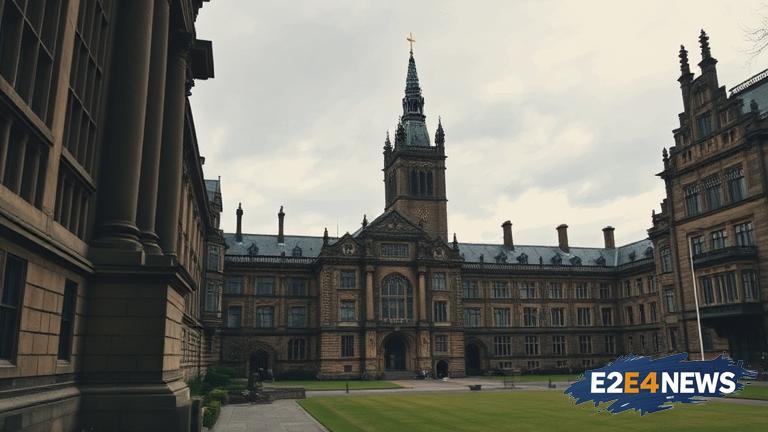The University of Edinburgh, one of the oldest and most prestigious institutions in the UK, has been found to have played a substantial role in the development of racist scientific theories. A thorough inquiry has uncovered the university’s complex and troubling history, highlighting the need for a nuanced understanding of its past. The investigation has shed light on the university’s connections to prominent figures who contributed to the creation of racist ideologies, including phrenology and eugenics. These theories, which were once widely accepted, have been widely discredited and are now recognized as pseudoscience. The university’s involvement in the development of these theories has sparked a necessary conversation about the institution’s legacy and its impact on modern society. The inquiry has also raised important questions about the responsibility of academic institutions to acknowledge and confront their past mistakes. Edinburgh University’s history is complex and multifaceted, with both positive and negative contributions to the world of science and academia. However, the university’s role in perpetuating racist ideologies cannot be ignored or downplayed. The inquiry has highlighted the need for a more nuanced understanding of the university’s past, one that acknowledges both its achievements and its failures. This includes recognizing the contributions of scholars who challenged racist ideologies, as well as those who perpetuated them. The university’s legacy serves as a reminder of the dangers of unchecked power and the importance of critical thinking in academia. The inquiry’s findings have significant implications for the university’s current and future students, as well as for the broader academic community. It is essential for institutions like Edinburgh University to acknowledge their past mistakes and to take steps to prevent similar errors from occurring in the future. This includes implementing policies and practices that promote diversity, equity, and inclusion, as well as providing education and training on the history and impact of racist ideologies. The university’s response to the inquiry’s findings will be closely watched, as it has the potential to set a precedent for other institutions facing similar challenges. Ultimately, the inquiry’s findings serve as a reminder of the importance of accountability and transparency in academia, as well as the need for ongoing efforts to promote social justice and equality. The University of Edinburgh’s story is a complex and multifaceted one, full of both successes and failures. As the institution moves forward, it is essential that it acknowledges its past and works to create a more just and equitable future for all. The inquiry’s findings have sparked a necessary conversation about the university’s legacy and its impact on modern society. It is now up to the university to take the necessary steps to address its past mistakes and to create a more inclusive and equitable environment for its students and faculty. The university’s history serves as a reminder of the importance of critical thinking and nuance in academia, as well as the need for ongoing efforts to promote social justice and equality. The inquiry’s findings have significant implications for the broader academic community, highlighting the need for institutions to acknowledge and confront their past mistakes. As the University of Edinburgh moves forward, it is essential that it prioritizes diversity, equity, and inclusion, and works to create a more just and equitable future for all. The university’s legacy is complex and multifaceted, and it is up to the institution to ensure that its past mistakes are not repeated. The inquiry’s findings serve as a reminder of the importance of accountability and transparency in academia, as well as the need for ongoing efforts to promote social justice and equality. The University of Edinburgh’s story is one that is still being written, and it is up to the institution to ensure that its future is more just and equitable than its past.
